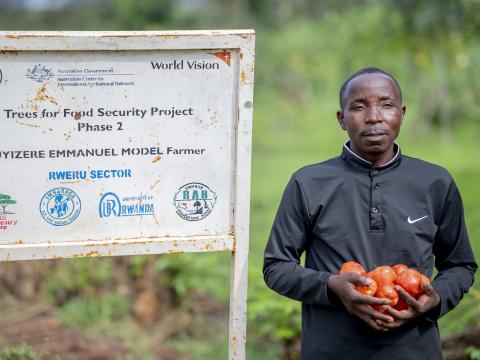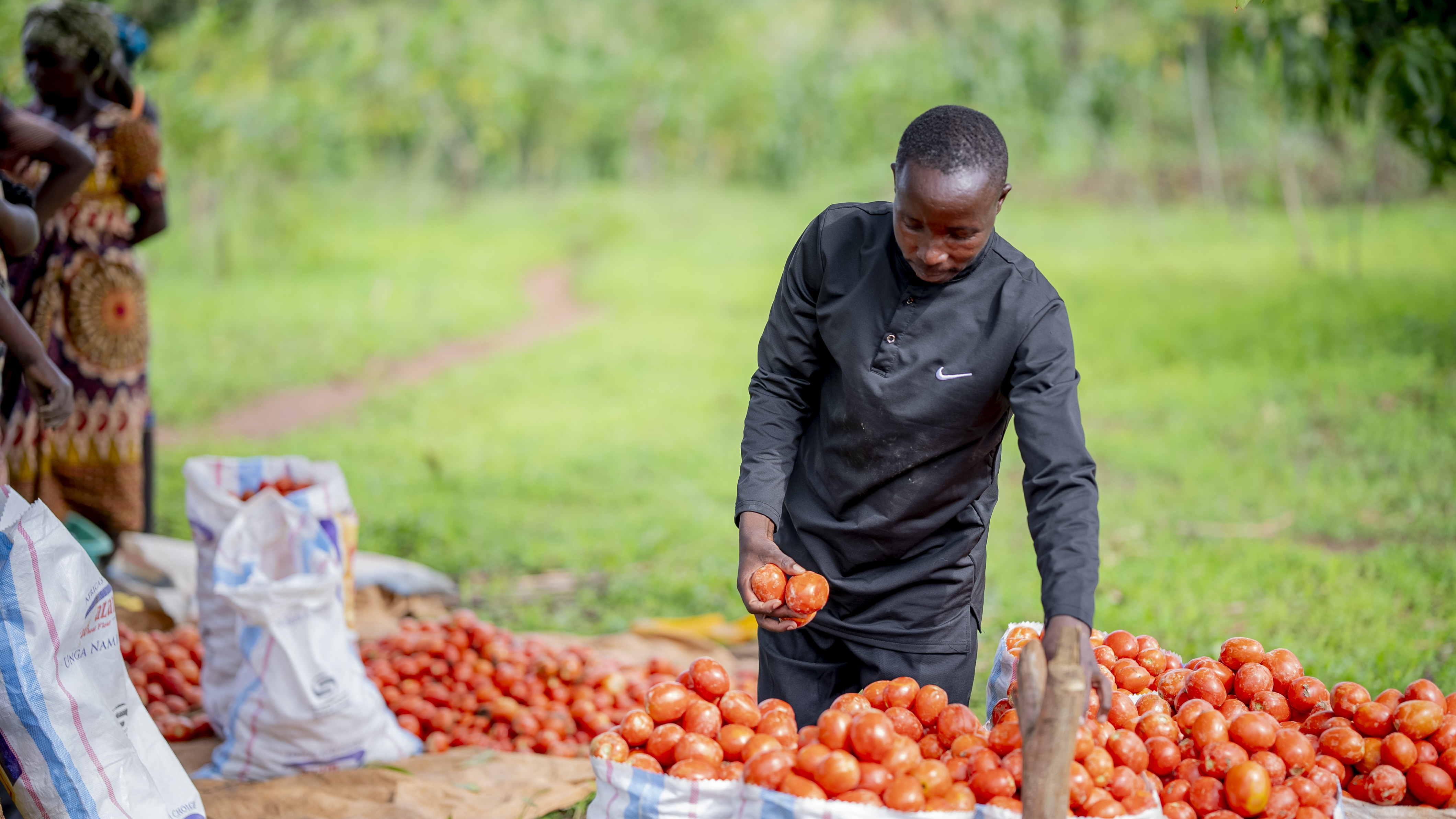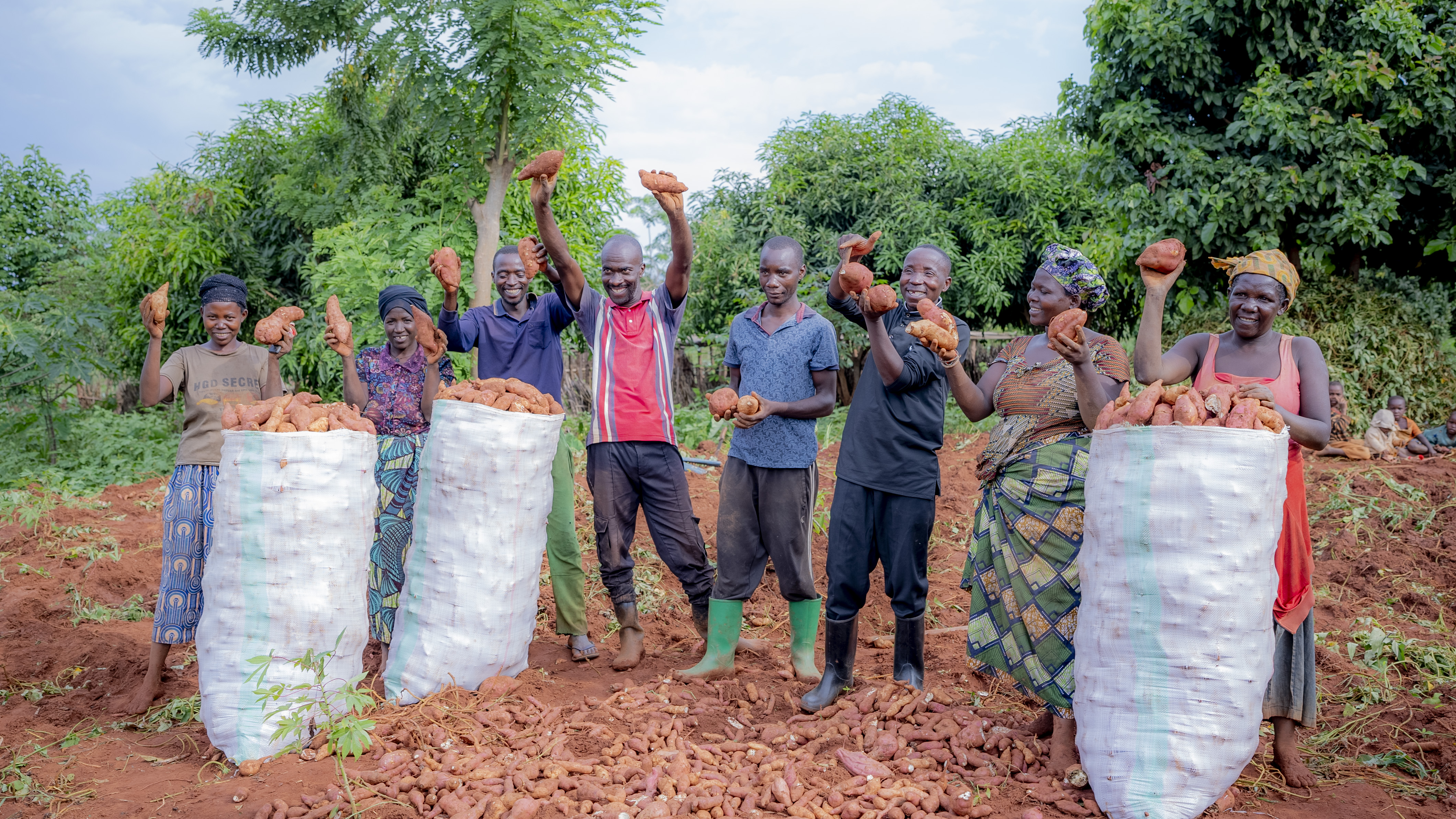The Son of World Vision: Cultivating Dreams and Tree Tomatoes

When Emmanuel first started his farming journey, his life was marked by struggle and uncertainty. Living in Bugesera District, he relied solely on subsistence farming to feed his family, with little to no knowledge of how to improve his yield or protect the environment. His fields were eroding, and his crops were failing to meet his family’s needs. The challenges were overwhelming, and farming felt like a never-ending battle against the land.
“At that time, I didn’t know how to farm sustainably or make my farm more productive. I was just surviving, not thriving,” Emmanuel reflects.
In 2015, Emmanuel’s situation began to change when he partnered with World Vision. The organisation introduced him to training in environmental protection, reforestation, and sustainable farming practices. His land, once struggling with wind erosion and soil depletion, started to show signs of hope.
“They changed my entire way of thinking about farming. I had never imagined the potential of farming for the market or the impact I could encounter by adopting sustainable practices. World Vision helped me create that vision and gave me the tools to bring it to life. They taught us the skills to regenerate our fields and turn our arid lands into fertile soil again,” he says.

Armed with new knowledge, Emmanuel began to implement sustainable farming practices on his land. He became one of the first extension agents in his area, helping other farmers adopt techniques to combat soil degradation and increase crop yields. Through his tree nursery, which grew fruit trees like papayas, oranges, and tree tomatoes, Emmanuel not only provided his family with food but also began earning an income.
“I never imagined I’d be able to send my children to school and take care of their future. But today, I can confidently say that I’ve educated my children, a chance at a better life,” Emmanuel says, proudly reflecting on how his financial situation has improved.
As his farm expanded, Emmanuel shifted from growing only for subsistence to cultivating crops for the market. His tree tomato farm, which started with just 500 seeds on a 30x50m plot, quickly grew.
“Despite initial skepticism from my neighbors, I started supplying Kigali’s markets with tree tomatoes, and soon, I was selling more than I ever thought possible,” Emmanuel shares.
His yields increased, and within a few years, he moved his family from the first to the third Poverty Category ranking(Ubudhehe). During a good season, Emmanuel earns 5 million Rwanda Francs. His children now have school uniforms, books, and the resources they need for their education. Emmanuel also pays for health insurance in advance, securing his family’s future.
Emmanuel’s success has impacted not only his family but also his entire community. Known as the “Tree Tomato Guy” or the “Son of World Vision,” he has distributed over 350,000 tree tomato seedlings to farmers across Bugesera and beyond. His efforts have played a critical role in reducing malnutrition in the area. He said that the impact of tree tomatoes on his community has been incredible, as they no longer rely on produce from faraway regions.
With World Vision’s support, Emmanuel purchased a three-hectare farm and installed solar-powered irrigation systems on four hectares. This technology has allowed him and other farmers to grow crops year-round, even during the dry season. Emmanuel’s story has caught the attention of local leaders, parliament members, and other high-ranking officials who visited his farm. He now shares his experiences widely proving that Bugesera’s lands can yield abundant harvests with the right knowledge and tools.
“World Vision gave me the tools to transform my life, my family’s future, and my community,” Emmanuel says, reflecting on the profound impact the organisation has had on his life.

Through World Vision’s partnership, he has not only improved his own life but has uplifted his community, showing them that hope, sustainability, and prosperity are within reach.
“Without World Vision’s support along with its partners and the government of Rwanda, our children would still be suffering from malnutrition. Our lands wouldn’t be as green, and trees would be scarce. But now, we have a bright future ahead,” Emmanuel says, his voice filled with hope for what the future holds.
Since partnering with World Vision in 2015, Emmanuel now prioritises sustainable farming and environmental protection, cultivating Indigenous species like Grevillea and Umusave (Markhamia lutea), and shifting from subsistence farming to a market-driven approach. This change has brought financial independence to his family but has also empowered fellow farmers in his community. Today, thanks to this partnership, his community has abundant firewood, poles for crops, and livestock fodder, enabling them to produce more milk and other resources. Above all, they now have hope for a brighter future, one where the land is restored, and the next generation can thrive.